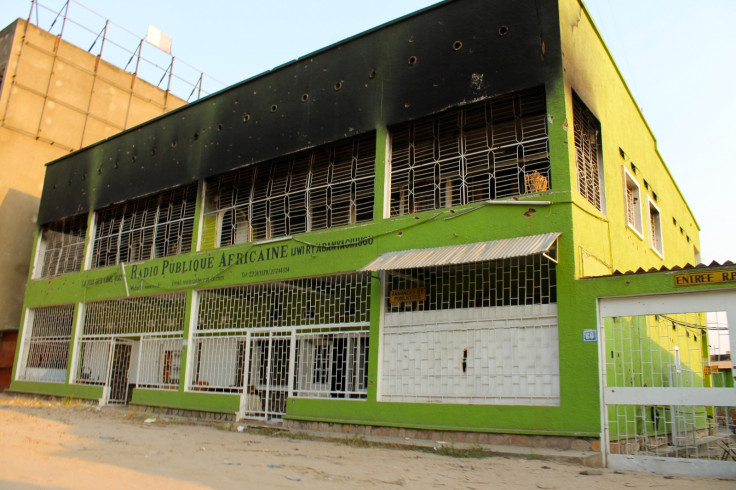I was exiled from Burundi for being a journalist – we need to get our press freedom back
Crisis has left more than 1,000 people dead, over 8,000 political prisoners and more than 500,000 exiled.

Hit. Injured. On 14 May 2015, in the aftermath of the coup attempt in Burundi, five independent independent radio stations were destroyed in targeted attacks "by unidentified armed persons", according to the authorities.
We woke up feeling groggy, with furred tongues as if we'd drunk one cocktail too many the night before. Because the night had been "hot", drenched in Molotov cocktails.
In the early morning, plumes of black smoke floated over Radio Television Renaissance and Radio Television REMA which were still smouldering. Radio Publique Africaine had been set on fire, and Radio Bonesha and Radio Isanganiro were wrecked, destroyed. That evening, there was silence on the airwaves.
It was a government crackdown on the media.
Until then, Burundians were well catered for. They had a choice. They didn't need the likes of RFI, the BBC or Voice of America. Burundians were proud to be able to "source" their news locally.
The choice was varied. There was news for all different tastes. Hot off the press. Professional. Well prepared. Well presented. But also, in some cases, badly presented. News that had been reheated, news that had sometimes gone off, news that was even toxic.
That morning signed the death warrant of the diversity we were so proud of. It's true that the media were not beyond reproach. There were mistakes, teething problems, occasional departures from our professional ethics.
When the moment comes, when Burundi is at peace once again – we want to continue believing in it – that legitimate process of taking stock that we practise and demand, we will have to accept it ourselves too and do some soul-searching, without compromises.
But in any event, whatever their "sins", whether serious or trivial, the Burundian media did not deserve this immolation by fire, this "final" solution.
Once the shock had passed, a few survivors of the destruction, tried to carry on "like before". But nothing will ever be like before. The crisis has left more than 1,000 people dead, more than 8,000 political prisoners and more than 500,000 exiled.
Threatened by the regime that accused me of being involved in the 13 May coup, I was forced to leave the country and have now lived for two years in Belgium. I became one of the more than 100 journalists currently living in exile.
Can we carry on "like before", when the field is now out off bounds for some of us? Journalists who want to understand and report properly need to be there. Be present in the field, "embedded" in reality. Breathe in the same air as their sources. Whatsapp has no soul.
Today, a few surviving media, fear in their bellies, are tying to continue to work as before. Iwacu newspaper, after a few weeks of silence, began to appear again, but its team, or rather what's left of it, after more fled into exile, is working under gruelling conditions.
We have to filter information, keep it under wraps, equivocate. We have to distort the voice of the brave person who "dared" testify, blur the photo of the source.
Today, journalists are suspect, they hide in the shadows when they're reporting, they have to announce their presence to the local authorities before trying to work, at their own risk.
"Mujeri" (starving dogs), standing before Moloch, scattered, exiled, stateless, destitute, but still alive: our colleague Jean Bigirimana was not so lucky. He has been missing since 22 July 2016. Let's remember him, but let's celebrate life too, despite everything, on this day dedicated to press freedom. More than ever, we have a duty to carry on, to deliver information as if pursuing a calling.
Antoine Kaburahe is the founder-director of independent media group Iwacu, and is currently living in exile in Belgium.
Burundi's media was among the first casualties of violence that has rocked the country since end of April. In May 2015, IBTimes UK exclusively reported how local journalists had gone into hiding as they feared they were on an alleged hit-list rolled out by the country's government after the failed coup d'etat.
This year, Burundi became the first of 21 countries in Reporters Without Borders' Press Freedom black list. It ranks 160th out of 180 countries in the 2017 Index.
© Copyright IBTimes 2024. All rights reserved.









